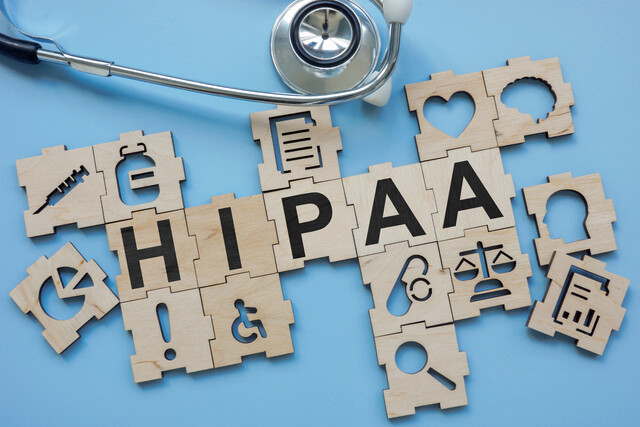Online Class: Medical Terminology 201

-
7Lessons
-
22Exams &
Assignments -
17Hours
average time -
1.7CEUs
Course Description
Mastering the Language of Healthcare: Medical Terminology 201
The healthcare industry is a vast, interconnected web of professionals, each serving a vital role in the well-being of patients. At the heart of this intricate network lies medical terminology—a language that acts as the pulse of every healthcare-related communication. Understanding this language isn't just a skill; it's a necessity for anyone hoping to navigate the medical field with finesse and proficiency.
"Medical Terminology 201" serves as an advanced gateway into this language. While prior experience or training, like our foundational "Medical Terminology 101" course, is advantageous, it isn't mandatory. This course has been sculpted for both seasoned professionals and eager newcomers keen on deepening their understanding of medical linguistics.
Central to our curriculum is an exploration of terms and concepts rooted in human anatomy. The course unravels the intricate tapestry of the human body, delving deep into each body system. Each lesson is meticulously curated, beginning with the foundational structures and functions of a system. This is followed by a dive into the realm of pathology, diagnostic tools, and procedural terminology. Our online classroom has been designed for optimal learning, offering an intuitive, easy-to-navigate interface that transforms the daunting task of medical terminology mastery into a streamlined, enjoyable experience.
But why, one might ask, is understanding medical terminology so crucial? The reasons are manifold:
-
Career Versatility: This knowledge is foundational for those stepping into the spheres of medical coding or medical billing. With the ever-growing healthcare industry, having expertise in medical terminology can significantly expand and improve job opportunities.
-
Interdisciplinary Communication: Whether you're eyeing roles in hospitals, insurance firms, government health agencies, or even in the legal domain—where medical record interpretation is vital—grasping medical terminology ensures efficient and error-free communication.
-
Enhanced Patient Care: For those in direct patient care roles, understanding medical language deepens patient-practitioner relationships, ensures clear communication, and often leads to better patient outcomes.
-
Broad Applicability: If you're veering towards any health and science career that necessitates interactions with physicians, dentists, or other medical experts, fluency in medical terminology is indispensable.
Our course structure offers a systematic journey through the human body:
-
Lesson 1. Integumentary System: Dive into the world of skin, its layers, functions, common diseases, diagnostic procedures, and relevant medical procedures.
-
Lesson 2. Respiratory System: Explore the mechanisms of breathing, the organs involved, common respiratory ailments, and the medical jargon associated with this vital system.
-
Lesson 3. Digestive System: Understand the journey of food, from ingestion to excretion, and familiarize yourself with terms related to common gastrointestinal conditions.
-
Lesson 4. Cardiovascular System: Delve into the heart of the matter—literally! Learn about the heart, blood vessels, circulation processes, and associated medical terms.
-
Lesson 5. Musculoskeletal System: Grasp the framework of the human body, diving deep into bones, muscles, ligaments, and their associated terminologies.
-
Lesson 6. The Nervous System: Navigate the intricate network of nerves, the brain, and spinal cord, understanding the terminologies associated with common neurological conditions.
-
Lesson 7. Genitourinary Systems: Explore the reproductive and urinary systems, their functions, common ailments, and associated medical procedures.
Each lesson is replete with assignments, exams, surveys, and documents, offering a comprehensive understanding of the topic at hand.
In the ever-evolving landscape of healthcare, fluency in its language can set you apart, ensuring not just career growth but also the satisfaction of efficient, effective, and compassionate patient care. "Medical Terminology 201" is your stepping stone into this world, offering a blend of in-depth knowledge and practical insights. Join us and hone the linguistic prowess that powers the world of healthcare.
Course Motivation
Are you considering pursuing a career in medical science? If so, it’s an absolute must that you have the ability to communicate with physicians, dentists or any other medical professionals.
If you’ve already gained a rudimentary knowledge of the healthcare language known as medical terminology, but it just wasn't enough, then Medical Terminology 201 will pick up where these other classes left off.
Keep in mind – this is an advanced course. While it’s not a pre-requisite, if your medical terminology skills are rusty (or even non-existent) then you might want to consider enrolling in our introductory course, Medical Terminology 101.
However, if you're confident that you've got what it takes to make it in today’s medical field, then the successful completion of this course is a pre-requisite!
Regardless of where you stand in the healthcare industry, you won’t get very far without a clear understanding of the language of medicine.
The primary focus of Medical Terminology 201 is to help you focus on the medical terms and concepts that are used to understand human anatomy.
Many potential students stand to gain a great deal from the successful completion of this class:
· Professional medical coders and/or billers.
· Individuals eager to improve or even expand their job opportunities.
· Those looking for careers in hospitals across the country (as well as insurance companies or government agencies)
· Plus, legal professionals working in the medical field.
Fortunately, you don’t need to wait to get started. Enrollment is open 24/7 and everything you’ll need in order to excel will be provided immediately. So stop wasting time – enroll today!
Medical Terminology 201 is an ideal option for students with a basic understanding of medical terminology and works well in an online, self-paced environment. The successful completion will require a lot of reading, research and memorization, so it’s advised that interested students are comfortable reading and writing with at least a high school level.
There are a total of seven lessons, which are organized and divided by the various systems of the human body. Every lesson starts with the structures and functions of the system and further explores pathology, diagnostic and procedural terminology.
All-in-all, you benefit from an easy-to-read, compact format that makes for fast, effective learning that lasts.
If you're dedicated to setting yourself up in a career in the medical or scientific communities, and refuse to settle for anything less than the ability to communicate with others already in the field – doctors, dentists, healthcare administrators, etc.--then this is the class that will get you where you want to go.
Better yet, everything that you'll need to pass this class is provided for you the minute you enroll. There are no additional books, supplies or memberships that you'll have to purchase. Not only will this save you money, it also saves one of your most precious commodities – your time!
In Medical Terminology 201, performance is measured through end-of-lesson quizzes and assignments worth 20-25 points a piece. However, the most important performance review will come at the end of the class with the final exam. In order to pass, you need to score at least 70% or better.
If you’re sure that you're prepared to dive into an advanced course and learn the language of medical terminology, you can get started on the mastery right now!
The minute you enroll, you’ll be ready to break the ice with Lesson 1: the Integumentary System. So act now!
You’re only a registration away from professional success.
Course Lessons
Lesson 1. Integumentary Insights
 Lesson 1 Video
Lesson 1 Video Review 4 Practice Worksheets
Review 4 Practice Worksheets Lesson discussions: Reasons for Taking this Course
Lesson discussions: Reasons for Taking this Course Complete: Integumentary Assignment
Complete: Integumentary Assignment Assessment: Exam 1 Review - Integumentary System
Assessment: Exam 1 Review - Integumentary System Assessment: Lesson 1 Review Exam
Assessment: Lesson 1 Review Exam
Lesson 2. The Mechanisms of Breathing: Anatomy and Function of the Respiratory System
 Lesson 2 Video
Lesson 2 Video Review 4 Practice Worksheets
Review 4 Practice Worksheets Complete Assignment: Respiratory Procedures
Complete Assignment: Respiratory Procedures Assessment: Exam 2 Review - Respiratory System
Assessment: Exam 2 Review - Respiratory System Assessment: Lesson 2 Review Exam
Assessment: Lesson 2 Review Exam
Lesson 3. Digestive System Pathologies and Interventions
 Lesson 3 Video
Lesson 3 Video Review 4 Practice Worksheets
Review 4 Practice Worksheets Complete Assignment: Gastroenterology Procedures
Complete Assignment: Gastroenterology Procedures Assessment: Exam 3 Review - Digestive System
Assessment: Exam 3 Review - Digestive System Assessment: Lesson 3 Review Exam
Assessment: Lesson 3 Review Exam
Lesson 4. Delving Into Cardiovascular Pathology and Treatment
 Lesson 4 Video
Lesson 4 Video Review 3 Practice Worksheets
Review 3 Practice Worksheets Complete Assignment: Heart Procedure
Complete Assignment: Heart Procedure Assessment: Exam 4 Review - Cardiovascular System
Assessment: Exam 4 Review - Cardiovascular System Assessment: Lesson 4 Review Exam
Assessment: Lesson 4 Review Exam
Lesson 5. The Intricacies of Bones and Muscles: A Comprehensive Exploration
 Lesson 5 Video
Lesson 5 Video Review 4 Practice Worksheets
Review 4 Practice Worksheets Complete Assignment: Fracture Types
Complete Assignment: Fracture Types Assessment: Exam 5 Review - Musculoskeletal System
Assessment: Exam 5 Review - Musculoskeletal System Assessment: Lesson 5 Review Exam
Assessment: Lesson 5 Review Exam
Lesson 6. Nervous System: Structure, Function, and Pathologies
 Lesson 6 Video
Lesson 6 Video Review 3 Practice Worksheets
Review 3 Practice Worksheets Complete Assignment: Deciphering a Procedure Report
Complete Assignment: Deciphering a Procedure Report Assessment: Exam 6 Review - Nervous System
Assessment: Exam 6 Review - Nervous System Assessment: Lesson 6 Review Exam
Assessment: Lesson 6 Review Exam
Lesson 7. Pathologies and Treatments: Genitourinary System
 Lesson 7 Video
Lesson 7 Video Review 5 Practice Worksheets
Review 5 Practice Worksheets Lesson discussions: What do you think about this course?; Program Evaluation Follow-up Survey (End of Course); Course Comments
Lesson discussions: What do you think about this course?; Program Evaluation Follow-up Survey (End of Course); Course Comments Complete Assignment: Urinary System Procedures
Complete Assignment: Urinary System Procedures Assessment: Exam 7 Review - Genitourinary Systems
Assessment: Exam 7 Review - Genitourinary Systems Assessment: The Final Exam
Assessment: The Final Exam Assessment: Lesson 7 Review Exam
Assessment: Lesson 7 Review Exam
Learning Outcomes
- Build and analyze medical terms by combining prefixes, suffixes, and word roots related to skin pathologies.
- Identify and describe the primary functions of the integumentary system, including protection and temperature regulation.
- Analyze and construct medical terms related to the respiratory system using given combining forms, prefixes, and suffixes, demonstrating correct spelling 80% of the time.
- Identify and label the major organs and structures of the respiratory system, including the lungs, bronchi, and trachea, with 90% accuracy.
- Build and analyze medical terms using digestive system-related word parts to accurately identify digestive disorders and treatment procedures.
- Identify and describe the major organs and structures of the digestive tract, including their functions in digestion and waste elimination.
- Describe the structure and function of each chamber and valve of the heart, including their roles in maintaining blood flow direction.
- Identify the differences between arteries, veins, and capillaries, and describe their respective functions in the cardiovascular system.
- Recognize and define key medical terms related to cardiovascular conditions, including types of circulations and potential diseases.
- Identify and describe the major structures and functions of the muscular and skeletal systems.
- Recognize and define terms related to muscle movements and identify several ways in which muscles are named.
- Describe the major functions of the central, peripheral, and autonomic nervous systems, including coordination, control, sensory integration, and involuntary responses.
- Identify common diagnostic and treatment procedures associated with nervous system pathologies, including encephalography, myelography, neuroplasty, and lobectomy applications.
- Demonstrate mastery of lesson content at levels of 70% or higher.
Additional Course Information

- Document Your Lifelong Learning Achievements
- Earn an Official Certificate Documenting Course Hours and CEUs
- Verify Your Certificate with a Unique Serial Number Online
- View and Share Your Certificate Online or Download/Print as PDF
- Display Your Certificate on Your Resume and Promote Your Achievements Using Social Media

Student Testimonials
- "Very helpful class. I actually enjoyed reviewing medical terminology terms and going over all the word roots, prefixes, suffixes, and diagnostic procedures." -- Estella F.
- "She responded quickly in all my exam results amd assignments." -- Maria F.
- "The instructor was always helpful and courteous." -- Wanda W.
- "Excellent course, great instructor." -- Tracy O.
- "It was very good and helpful." -- Padraig B.
- "I found the Lessons to be most helpful going from The term Prefixes and Suffixes to the Actual Words and Definitions and then bringing the issues in." -- Abe D.
- "The videos that accompanied the lessons were outstanding." -- James (Jim) B.
- "The video tutoring was excellent for me." -- Rhonda C.
- "What was most helpful was the videos with the medical terms spoken and showing the actual surgical procedures." -- Lisa Paige D.
- "I loved the ability to review and re-review the information. And, I loved the ability to print out the info so I could do studying off line away from the computer." -- Karen Y.
Related Courses
-
 10 hours
1.0 CEUs
Understanding Addictions
+ More Info
10 hours
1.0 CEUs
Understanding Addictions
+ More Info
-
 17 hours
1.7 CEUs
Introduction to Medical Billing
+ More Info
17 hours
1.7 CEUs
Introduction to Medical Billing
+ More Info
-
 20 hours
2.0 CEUs
Introduction to Medical Coding
+ More Info
20 hours
2.0 CEUs
Introduction to Medical Coding
+ More Info
-
 6 hours
0.6 CEUs
HIPAA Compliance 101
+ More Info
6 hours
0.6 CEUs
HIPAA Compliance 101
+ More Info
-
 4 hours
0.4 CEUs
Healthcare Code and Conduct
+ More Info
4 hours
0.4 CEUs
Healthcare Code and Conduct
+ More Info
-
 2 hours
0.2 CEUs
Careers in Healthcare
+ More Info
2 hours
0.2 CEUs
Careers in Healthcare
+ More Info
-
 17 hours
1.7 CEUs
ICD-10: Medical Coding
+ More Info
17 hours
1.7 CEUs
ICD-10: Medical Coding
+ More Info
-
 14 hours
1.4 CEUs
Medical Terminology for Medical Coders
+ More Info
14 hours
1.4 CEUs
Medical Terminology for Medical Coders
+ More Info
-
 7 hours
0.7 CEUs
Understanding Concussions
+ More Info
7 hours
0.7 CEUs
Understanding Concussions
+ More Info
-
 5 hours
0.5 CEUs
End of Life Care
+ More Info
5 hours
0.5 CEUs
End of Life Care
+ More Info
-
 20 hours
2.0 CEUs
CPT Coding for Beginners
+ More Info
20 hours
2.0 CEUs
CPT Coding for Beginners
+ More Info
-
 8 hours
0.8 CEUs
Medical Office Management
+ More Info
8 hours
0.8 CEUs
Medical Office Management
+ More Info






